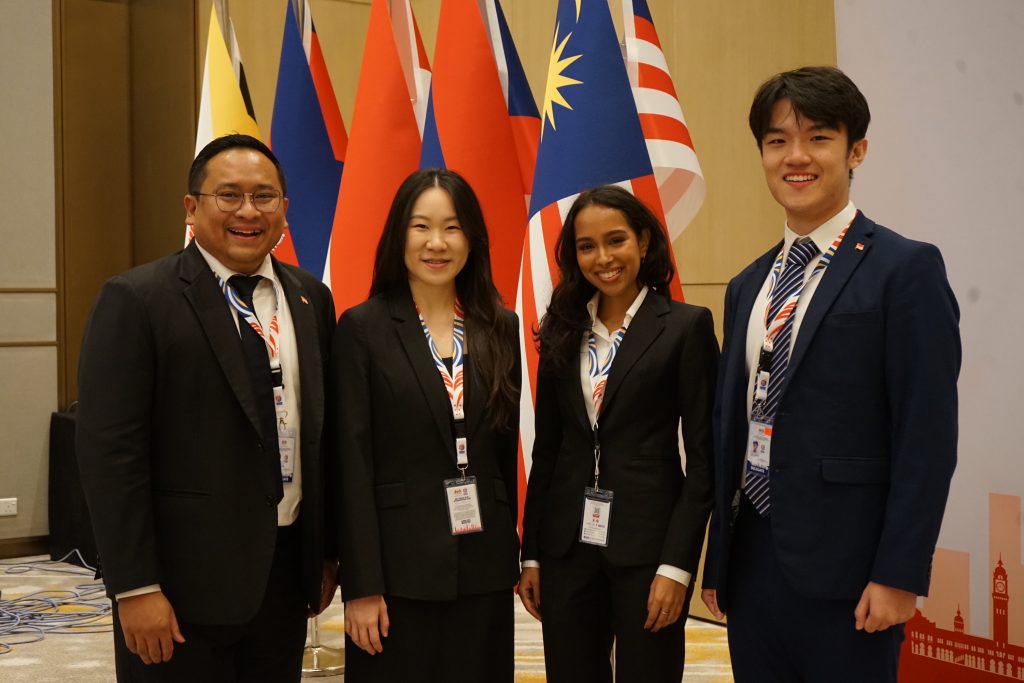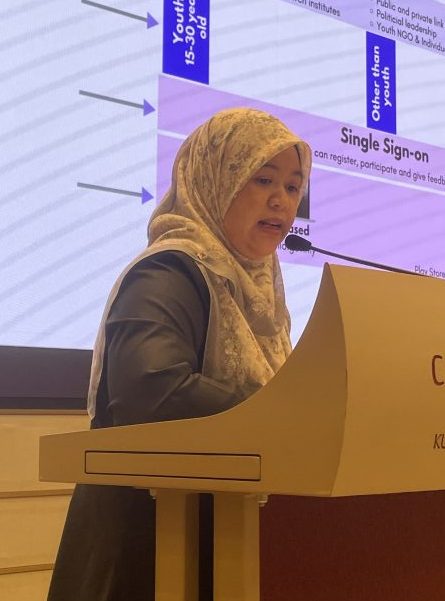
by SHAUQI WAHAB
MALAYSIA is taking a structured and research-backed approach to youth empowerment through the Institute for Youth Research Malaysia (IYRES), focusing on evidence-based policies that address mental health, economic inclusion and civic engagement.
IYRES senior research executive Asnida Arshad shared Malaysia’s evolving youth development framework, listing major findings from recent studies and the implementation of comprehensive strategies to empower youth at the national level.
One of the key concerns raised was the growing mental health challenges among Malaysian youth, exacerbated by the effects of the Covid-19 pandemic and increased exposure to online stressors.
In response, IYRES conducted the Youth Mental Health Index in collaboration with Unicef, covering seven domains and 28 indicators such as lifestyle, personal characteristics, social support and coping mechanisms.
She said the score received was moderately satisfactory with an index score of 79.71 out of 100.
“While life experience scored high, mental resilience and environmental pressures need further support.
“These insights must be factored into future development programmes,” she said in her presentation on the overview of youth development in Malaysia during the Fourth ASEAN Youth Dialogue today.

While life experience scored high, mental resilience and environmental pressures need further support, says Asnida (pic: SHAIQI WAHAB/TMR)
Building on these insights, IYRES developed the Youth Socio-economic Empowerment Plan (Y-SET), which outlines 10 strategies and 24 initiatives focused on strengthening youth wellbeing, promoting economic participation and ensuring sustainability.
This plan draws from national policy frameworks and includes programmes such as job matching, career guidance, cultural events and youth leadership development.
“This is not just about research — we are shaping national strategies,” Asnida said.
According to her, the Y-SET is guided by four core pillars: User-based planning, strategic partnerships, impact assessment and digital monitoring.
A recurring issue in the IYRES research was the low level of youth engagement in political discourse, with young people expressing scepticism and distrust toward political leadership.
She explained that many youths perceive politics as unclean or irrelevant to their daily lives. Furthermore, many of them vote without fully understanding the political context. They rely on social media or their parents’ views.
“The score for political participation in our Youth Index remains low because of such internal and external influences,” she said.
While IYRES does not implement political advocacy programmes directly — given its role as a research body — it continues to provide data and policy suggestions to relevant government agencies.
Asnida stressed that creating meaningful political engagement among youth would require stronger cross-sectoral collaboration, especially in education and civic awareness.
Currently, IYRES operates with a staff of 40, half of whom are researchers conducting nationwide studies, including an ongoing survey on youth not in employment, education or training (NEET).
The findings from this study are expected to be released later this year and will further inform Malaysia’s youth policy direction.
“Through structured policy, digital tools and collaborative action, we aim to empower them to thrive locally and compete globally,” she said.
The post Malaysia charts research-driven path to youth empowerment appeared first on The Malaysian Reserve.

